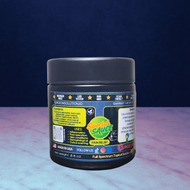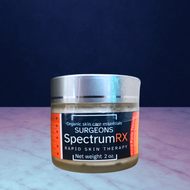Surgeons Online Cannabinoid Academy
CBD Use Considerations for Heart Disease, Pregnancy, and Special Health Conditions
Introduction
CBD, or cannabidiol, is a popular natural supplement known for its potential benefits in managing stress, pain, and sleep issues. While generally considered safe, individuals with specific health conditions such as heart disease, pregnancy, or other special medical needs should approach CBD use with caution. Understanding the unique considerations for these groups is essential for safe and effective use. This guide explores how CBD interacts with the body in these contexts and provides tips for using it responsibly.
CBD and Heart Disease
CBD has shown promise in supporting heart health, particularly for its anti-inflammatory and stress-reducing properties. Research suggests that CBD may help lower blood pressure by relaxing blood vessels and reducing anxiety, which are significant contributors to heart health. Additionally, CBD’s antioxidant properties may protect against oxidative stress, a key factor in heart disease progression.
However, individuals with heart disease must exercise caution. CBD can temporarily lower blood pressure, which may be problematic for those taking blood pressure medications. It’s essential to consult a healthcare provider to determine whether CBD is safe and appropriate based on your specific condition and medication regimen.
CBD Use During Pregnancy
The use of CBD during pregnancy is a topic of ongoing debate due to limited research. While CBD is non-intoxicating and may offer benefits such as stress relief, the lack of comprehensive studies makes it difficult to determine its safety for pregnant individuals and their developing babies. Concerns about how cannabinoids interact with the endocannabinoid system (ECS) during fetal development further underscore the need for caution.
Healthcare providers generally recommend avoiding CBD during pregnancy until more definitive research is available. If considering CBD use, it’s crucial to consult with a medical professional to weigh potential benefits against risks.
CBD for Other Special Health Conditions
CBD has been explored for its potential benefits in managing various health conditions, including:
- Epilepsy: FDA-approved CBD products like Epidiolex have demonstrated effectiveness in reducing seizures for individuals with specific forms of epilepsy.
- Autoimmune Diseases: CBD’s anti-inflammatory properties may provide relief for conditions like rheumatoid arthritis or lupus.
- Chronic Pain: By interacting with the ECS and reducing pain signals, CBD can be a valuable tool for managing persistent discomfort.
Despite these potential benefits, individuals with special health conditions should approach CBD use with a personalized plan developed in collaboration with their healthcare provider. Understanding how CBD interacts with other medications and the specific nuances of your condition is essential for safe and effective use.
Guidelines for Safe CBD Use
For individuals with heart disease, pregnancy, or special health conditions, following these guidelines ensures safer CBD use:
- Consult a Healthcare Provider: Always seek professional advice before starting CBD, especially if you have preexisting conditions or take other medications.
- Start Low and Go Slow: Begin with a low dose and monitor your body’s response, adjusting gradually as needed.
- Choose High-Quality Products: Opt for CBD products that undergo third-party lab testing to verify purity, potency, and safety.
- Read Labels Carefully: Ensure the product is free from harmful additives and provides transparent information about cannabinoid content.
These steps help minimize risks and maximize the potential benefits of CBD for individuals with unique health considerations.
Conclusion
CBD offers a range of wellness benefits, but individuals with heart disease, pregnancy, or other special health conditions must approach its use with care. By consulting healthcare providers, choosing high-quality products, and starting with a personalized plan, users can safely explore the benefits of CBD. Prioritizing safety and informed decision-making ensures that CBD becomes a valuable addition to your wellness routine.
Introduction
- Overview of CBD as a popular natural wellness supplement.
- Importance of considering special health conditions before using CBD.
CBD and Heart Disease
- Explanation of CBD’s potential benefits for heart health.
- Considerations for individuals with heart disease, including blood pressure effects and interactions with medications.
CBD Use During Pregnancy
- Discussion of the limited research on CBD and pregnancy.
- Safety concerns and the importance of consulting a healthcare provider.
CBD for Other Special Health Conditions
- Exploration of CBD’s role in managing conditions like epilepsy, autoimmune diseases, and chronic pain.
- Emphasis on personalized approaches and professional guidance.
Guidelines for Safe CBD Use
- Tips for choosing the right product and dosage for individuals with special health needs.
- Importance of high-quality products and third-party lab testing.
Conclusion
- Recap of considerations for CBD use with special health conditions.
- Encourage readers to prioritize safety and consult healthcare providers.









